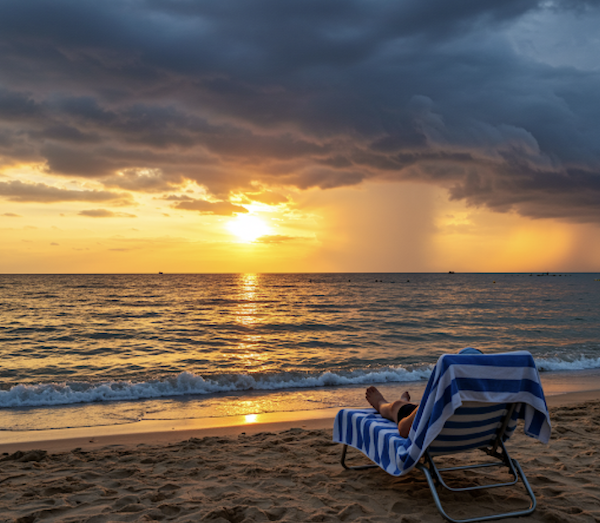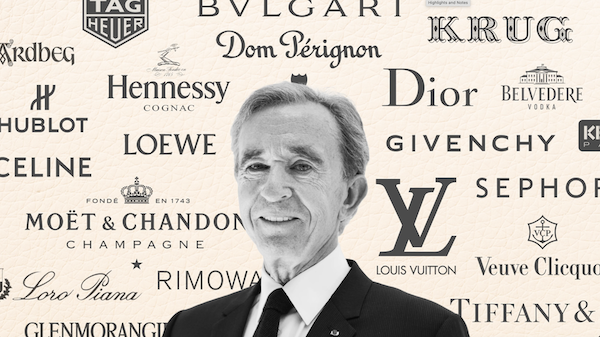Market scorecard
US stocks opened well yesterday, then shook off a midday wobble to close higher. Sadly, these moves were thanks to tariff-related mumblings by you-know-who. Trump's non-stop announcements, exemptions, promises and admonishments makes it seem that the chaos is the point. He's loving being the centre of attention. It's his world now, and we just live in it.
In company news, Dell surged 4.0%, Apple added 2.2%, and Micron climbed 2.1%, all getting a lift from the US excluding laptops, semiconductors, and other electronics from steep tariffs. Automakers rose, for the same reason. Elsewhere, Goldman Sachs (+2.0%) joined the earnings party, reporting a record quarter for equity trading.
At the end of another exasperating day, the JSE All-share was up 2.67%, the S&P 500 rose 0.79%, and the Nasdaq was 0.64% higher. We shall remain fully invested, and try to look through all this drama.
Our 10c worth
One thing, from Paul

A Brooklyn-based woman named Sylvia Bloom left behind an estate worth $9 million when she died in 2016. The bulk of that money was donated from her estate to provide scholarships for underprivileged students.
She never earned a high income. No one knew she was worth that much. She was a legal secretary at the Wall Street law firm called Cleary, Gottlieb, Friendly, & Cox. She worked there from 1947 until she died.
She was quite frugal, living in a rent-controlled apartment, but also travelled to Europe on occasion and took frequent holidays to Las Vegas because her husband liked gambling. He had nothing to do with her investments, which were in her own name (and he died in 2002). Her niece Jane Lockshin was named as her executor.
Bloom's investment method was to acquire shares that her bosses were buying, and hold them for a long time. The most important reason for her amazing gains was that she lived until she was 96. She had lots of "time in the market."
Michael's musings

I was chatting to a client yesterday who said that he knows that the long-term trajectory of the market is higher, but he can't invest now because he doesn't like all the volatility. Fair enough, volatility isn't pleasant and not everyone can handle it.
My reply to him was that volatility is only an issue if you have a short-term investment mindset. If you plan to be invested for a decade or two, what's happening now doesn't really matter. What matters is where the market will be when you need to sell. Trump will be out of power in four years, I'll still be holding my shares in at least 30 years from now.
The best way to endure these rough times is to only invest money you know you don't need back soon. Also, don't invest using debt. When the market is going up and things are calm, it is very tempting to borrow money to add to your portfolio. That idea backfires when the market drops 20% in a very short period of time.
Even for our clients approaching retirement age, modern medicine means that you will probably live till at least 85. You have another 10 to 20 years in the market, and will probably have to endure another two or three crises. So don't worry about this one.
Bright's banter

The world's biggest luxury group, LVMH, reported weaker-than-expected sales for the first quarter, as global luxury spending slows. Organic revenue dropped 3% year-on-year to EUR20.3 billion, well below expectations.
All of its divisions missed forecasts, with Fashion & Leather Goods, its biggest cash machine down 5% organically, led lower by brands like Louis Vuitton and Dior.
The disappointment was broad-based. US sales fell 3%, and Asia ex-Japan tumbled 11%, as the sector struggles to find footing in a world that's both geopolitically edgy and economically jittery. Last year's buying boom in Japan, thanks to Chinese tourists and a weak Yen, didn't repeat this time, and sluggish consumer confidence in the US isn't picking up the slack.
The luxury sector is staring down a double threat: weakening global demand and escalating trade tensions, with Trump's 145% tariffs on China and a 10% levy on EU goods causing headaches. LVMH says it has US production capacity for Louis Vuitton and Tiffany to cushion the blow, but scaling that up will take time.
I believe that LVMH is better positioned than its peers, thanks to its scale and some production on US soil. But there's no escaping the current mood of uncertainty, from shaken equity markets to anxious consumers. People aren't buying fewer handbags because they're poorer, but because they're unsure what tomorrow looks like.
In conclusion, the luxury boom may be taking a breather, and LVMH just signalled it could be a longer nap than hoped.
Linkfest, lap it up
If you speak English, you have an advantage over many people. It's the common language used in business and travel - Duolingo's most popular languages in every country.
Magnetic tape is a very old and inefficient way to store data. It does have the advantage of not being hackable - DOGE team converts government records to digital format.
Signing off
Asian markets started the day on a positive note, with Japan leading the charge after President Trump hinted at a possible pause on auto tariffs. Japanese auto giants like Toyota and Honda revved higher, lifting the Nikkei over 1%.
In local company news, Gold Fields is being forced to wind down operations at its Damang mine in Ghana after the country's Minerals Commission rejected its application to extend the mining lease. Gold Fields owns 90% of Damang, and while the mine hasn't been a major growth driver recently, the sudden shutdown adds some unplanned disruption.
US equity futures are in the green, but there are some hours to go before that's properly predictive of the session ahead.
The Rand has perked up a bit, now trading at R18.87 to the dejected Dollar.
Enjoy your day and don't worry about the markets, just leave that to us.